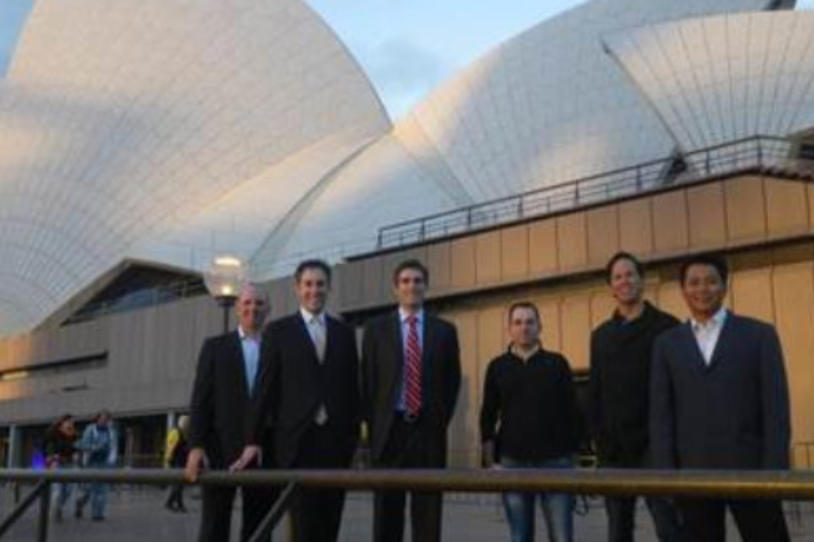
Contestants in the MJFF Parkinson's Data Challenge pictured with Ken Kubota (far right).
Editor’s note: The world’s top Parkinson’s specialists gathered last week in Sydney, Australia, for the annual meeting of the Movement Disorder Society. In conjunction with that event, the Kinetics Foundation held its annual meeting on Objective Measures in PD. The winner and runners-up in MJFF’s Parkinson's Data Challenge were invited to attend and present their data. Ken Kubota, program director at the Kinetics Foundation, sent this note, of which Maurizio Facheris, associate director of research programs at MJFF, says: “Something that started as a simple grant and, for us, as an experiment, turned out to be a great, efficacious and fruitful model.”
MJFF Parkinson's Data Challenge contestants made a good showing at our Objective Measures Banquet. They presented a much-needed new perspective on how data from devices can be used to identify and characterize PD accurately. It raised significant curiosity from our usual participants and connections were made.
One contesting team was a collaboration between Australia’s Commonwealth Scientific, Industrial Research Organization, and the University of Queensland. They said that the MJFF contest was a catalyst that advanced their research on eHealth by a year.
Contest runner up, Michelle Wang, who recently completed her BS at MIT, will be beginning her masters in computer science sponsored by Medtronic to develop objective measures algorithms.
LionSolver, the winner of the 10K prize, is thinking about retooling their architecture analysis software to the detection of neurodegenerative diseases.
The story becomes even more compelling when you consider that it all started with an ad hoc $850 clinical trial by the Vannoni brothers. They bought the smartphones used on Craigslist for around $50 each, and collected the data from participants via free Gmail accounts. The total expenses of the trial came out to around $850, but the real cost was actually less because they resold the smartphones at the end of the trial. In his presentation, Daniel Vannoni emphasized his belief that entrepreneurial, cost-effective and “scrappy” approaches like this one can yield incredible impact for patients. It certainly worked in this case. Good work Alex and Daniel!